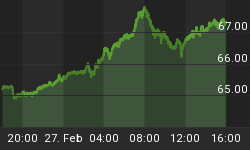Treasury bonds are paying the lowest interest rate in over 30 years, yet, everyone seems to agree that America has too much national debt. This year, the country will be approaching a national debt level which equals 70% of its GDP, the value of all the goods and services the country products. This number is high by American standards. The only time it has been higher is during the World War II . What will the consequences be of all this debt?
Japan has been carrying more debt as a percentage of GDP than the United States for almost 30 years. Their national debt load is currently over twice their GDP. During this time, Japan's economy has been growing at a snails pace. Is this a consequence of having a large national debt? Yes. There are two common sense reasons:
- Every dollar that an investor gives to finance the national debt, cannot be invested in the private sector.
- To pay the interest on this debt, the government must have higher taxes or take on more debt, both of which are negative for economic growth.
Ironically, the low-level of economic growth in Japan has enabled the Japanese government to take on more debt. As the private sector is not growing, the stock market has been flat and inflation is close to zero. (The Japanese central bank has an inflation GOAL of 1% for this year.) As a result, the Japanese government can pay almost no interest. The 10 year Japanese Government Bond is currently yielding about 0.8%. This also means that the Japanese government has not had to show fiscal restraint.
No one wants the US to turn into Japan. However, the problem is simple. Preventing a Japan scenario will involve a lot of short-term economic pain. Politicians in Japan, China, Europe, and America don't want to enact policies which will have a few years of extremely negative impact. If they do they know they will be voted out of office and their policies will be reversed. At one point, Chinese politicians might have been able to do this, however, I don't believe that they can anymore. The Communist Party's power now rests on its ability to deliver short-term economic prosperity.
We live in a world of immediate gratification and short-term fixes. The legendary Chief Investment Officer of PIMCO, Mohamed El-Erian, recently described America as the "Least dirty clean shirt". In other words, all of the major world economies have problems, however, the US has the least of them at the moment. As long as this situation persists, the US can delay its day of reckoning.
Here are a couple signs that other areas of the world are on the way to cleaning their shirts, and that you might want to look at selling US Treasuries with a long-term view. Both of the following, in the short-term might be good for US Treasury prices.
The European Monetary Union kicks out Greece.
In short-term, Greece being kicked out of the Euro would cause financial chaos. Financial assets would leave financial weaker European countries (Spain, Portugal, Italy) that are part of the EMU. Those with exposure to these countries, such as European banks, would have large financial losses. And Greece, would not be able to access the global credit markets for many years to come and probably have massive price inflation.
In the long-term, this move would go along way to installing fiscal discipline in the EMU countries. Nations would behave more financially responsible because there would be a real consequence to bad behavior, being kicked out of the the Euro.
China allows the Yuan to trade freely against other currencies.
In the short-term, the value of the Yuan would rise against the major currencies of the world. This would reduce Chinese exports and increase imports, as foreign goods would become cheaper.
In the long-term, this would indicate that China was moving away from a completely export driven economy where manufacturing is the primary driver of economic activity.This would represent a major move towards economic diversification and making the Chinese consumer market a major area for economic growth.
The future will belong to those willing to take on short-term economic pain to fix long-term problems. Unfortunately, very few are willing to take this route.
This article was provided by LearnBonds which is focused on bond market education and commentary. We are particularly proud of our section on MunicipalBonds. which cover tax issues, credit ratings/safety and yields.















